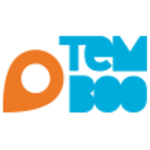Description

Blynk

Oracle Cerner
Comprehensive Overview: Blynk vs Oracle Cerner
Blynk Overview
a) Primary Functions and Target Markets
Blynk is an Internet of Things (IoT) platform designed to enable developers to build IoT applications quickly and easily. Its primary functions include:
- Device Management: Connect and manage multiple devices from a single interface.
- App Building: Allows users to create interfaces for controlling and monitoring IoT devices without extensive coding through a drag-and-drop mobile app builder.
- Data Storage and Analytics: Provides data collection, storage, and analytics to process and act on sensor data.
- Connectivity: Supports a wide range of hardware platforms from major brands such as Raspberry Pi, ESP8266, ESP32, and more.
The target market for Blynk includes individual developers, startups, educational institutions, and small to medium businesses interested in rapid IoT application development.
b) Market Share and User Base
Blynk is a significant player in the emerging IoT platform space, especially popular among hobbyists, educators, and small enterprises. Its market share is growing, though it faces competition from other IoT platforms like Particle, ThingSpeak, and Adafruit IO. Blynk's user base is characterized by a grassroots community of developers and educators attracted to its ease of use and flexible pricing model.
c) Key Differentiating Factors
- User-Friendly Interface: Blynk stands out for its simple, user-friendly app builder that requires minimal coding.
- Community Focus: Strong community support and resources make it a preferred choice for individual developers and educators.
- Cost-Efficiency: Flexible pricing models tailored for small-scale projects and educational purposes.
Oracle Cerner Overview
a) Primary Functions and Target Markets
Oracle Cerner is a leading provider of health information technology solutions. Its primary functions include:
- Electronic Health Records (EHR): Comprehensive EHR solutions that allow healthcare providers to manage patient information efficiently.
- Data Analytics: Advanced analytics tools for population health management and operational intelligence.
- Interoperability: Facilitates the exchange and integration of health information across multiple systems.
- Revenue Cycle Management: Helps healthcare organizations optimize financial performance.
The target market for Oracle Cerner includes hospitals, healthcare providers, public health organizations, and larger healthcare networks seeking robust IT solutions for managing patient care and hospital operations.
b) Market Share and User Base
Oracle Cerner is one of the leaders in the healthcare IT market, competing with other giants like Epic Systems. Its market share is significant within large hospitals and health systems, known for its enterprise-scale solutions. Oracle Cerner's user base primarily consists of large healthcare providers and hospitals, with a strong presence in North America and expanding globally.
c) Key Differentiating Factors
- Comprehensive EHR Solutions: Oracle Cerner offers a wide array of healthcare IT solutions, known for their depth and integration capabilities.
- Interoperability Leadership: Recognized for its strong interoperability solutions which allow different healthcare systems to communicate seamlessly.
- Scalability and Customization: Ability to scale and customize solutions to meet the specific needs of diverse healthcare providers.
Comparison of Blynk and Oracle Cerner
While both Blynk and Oracle Cerner operate in technology sectors, their markets, functionalities, and customer bases are vastly different. Blynk focuses on the IoT development ecosystem, targeting smaller, more agile projects, whereas Oracle Cerner caters to the healthcare industry with comprehensive enterprise solutions aimed at large-scale operations. The primary differentiation lies in their target industries (IoT vs. healthcare), scale of deployment, and market focus, making direct comparisons of market share irrelevant beyond noting that each holds significant positions within their distinct sectors.
Contact Info

Year founded :
2018
Not Available
Not Available
India
http://www.linkedin.com/company/blynk-elektrischvaren

Year founded :
Not Available
Not Available
Not Available
Not Available
Not Available
Feature Similarity Breakdown: Blynk, Oracle Cerner
Blynk and Oracle Cerner serve different primary functions and target different markets: Blynk is typically a platform for IoT (Internet of Things) development, while Oracle Cerner is a comprehensive healthcare information technology solution. Nonetheless, there are some areas where their features might overlap or have elements worth comparing.
a) Core Features in Common
-
Data Management:
- Both platforms handle large volumes of data. Blynk manages real-time data from IoT devices, while Oracle Cerner handles extensive healthcare data.
-
Scalability:
- Scalability is a core feature of both platforms. Blynk allows the addition of numerous IoT devices and management of their data, whereas Oracle Cerner supports scaling across healthcare institutions with complex data requirements.
-
User Dashboards:
- Both provide user-friendly dashboards to visualize data, although the specifics of their functionality differ greatly due to their different purposes.
-
Cloud Integration:
- Blynk and Oracle Cerner both leverage cloud technologies to store and process data, offering remote access and data backup features.
b) User Interface Comparison
-
Blynk:
- Simple, intuitive interface designed for IoT project builders and developers.
- Drag-and-drop features allow users to create interfaces that manage IoT device data.
- Mobile app-centric, focusing on ease of monitoring and controlling IoT devices via smartphones.
-
Oracle Cerner:
- Complex, data-rich interface tailored for healthcare providers.
- Prioritizes detailed electronic health records (EHRs) management, patient information, and clinical workflows.
- Designed to integrate various aspects of healthcare information and support clinical decision-making.
c) Unique Features
-
Blynk:
- Widget-based Interface: Allows customizations for IoT projects with various widgets.
- Real-time Control: Offers immediate interaction with connected devices through its mobile and web applications.
- Community and DIY Focus: Supports hobbyists and developers in prototyping and building IoT projects with ease.
-
Oracle Cerner:
- Comprehensive EHR Solutions: Provides robust management for detailed patient records and history tracking.
- Clinical Decision Support: Utilizes advanced algorithms to support medical decision-making processes.
- Interoperability: Strong integration capabilities with other healthcare systems and standards to facilitate information exchange across healthcare networks.
Given these distinctions, it's vital to note that choosing between these platforms would not typically occur as they address different market needs: IoT vs. healthcare IT. However, the comparison highlights how diverse platform features can still share fundamental similarities in technology use, such as data management and cloud integration.
Features

User-Friendly Mobile App
Cloud Connectivity
Device Management
Customizable Dashboards
Security Features

Patient Care
Data and Analytics
Operational Efficiency
Best Fit Use Cases: Blynk, Oracle Cerner
Blynk
a) For what types of businesses or projects is Blynk the best choice?
Blynk is a versatile IoT platform best suited for businesses and projects focusing on Internet of Things (IoT) solutions. It is particularly beneficial for:
-
Startups and Small to Medium-Sized Enterprises (SMEs): Blynk offers an easy-to-use interface and low-code environment, making it ideal for startups and SMEs that need to develop IoT applications quickly and without extensive resources.
-
Prototyping and Innovation Labs: Blynk is a great choice for rapid prototyping due to its drag-and-drop mobile application builder and integration with a wide range of microcontrollers and development boards like Arduino, ESP8266, and Raspberry Pi.
-
Consumer IoT Products: Companies developing consumer IoT products, such as smart home devices, can benefit from Blynk’s customizable mobile applications which allow for easy remote device control and monitoring.
-
Educational Institutions: Its user-friendly interface and support for various microcontrollers make it suitable for educational projects where students can learn about IoT and device connectivity.
-
Developers and Makers: Individual developers or hobbyists working on personal IoT projects find Blynk's platform conducive for building and managing IoT applications without needing to invest in infrastructure.
How Blynk Caters to Different Industry Verticals or Company Sizes:
- Consumer Electronics: Flexible app solutions for device management.
- Agriculture: Real-time monitoring of sensors and automated systems.
- Smart Cities: Solutions for managing public services like lighting and surveillance.
- Healthcare: Systems for remote monitoring of health parameters.
Oracle Cerner
b) In what scenarios would Oracle Cerner be the preferred option?
Oracle Cerner is a leading provider of healthcare information technology and is best suited for:
-
Large Hospitals and Health Systems: Its comprehensive electronic health record (EHR) solutions cater to large-scale healthcare organizations needing integrated systems to manage patient records and streamline clinical processes.
-
Health Information Exchanges (HIEs): Organizations that need to facilitate the electronic movement of health-related information between diverse health care information systems.
-
Specialty Clinics: Facilities looking for solutions tailored to specific specialties can use customized modules within Cerner’s platform.
-
Government and Military Health Services: Its secure and scalable systems are well-suited for complex and high-security requirements often found in military or government health services.
-
Pharmaceutical Companies: For managing clinical trial data and ensuring compliance with regulatory standards.
How Oracle Cerner Caters to Different Industry Verticals or Company Sizes:
- Large Healthcare Networks: Provides scalable EHR and data analytics solutions.
- Specialized Clinics: Offers modules tailored to specific medical specialties.
- Public Health Organizations: Facilitates population health management and reporting.
- Research Institutions: Supports data integration and management for large-scale clinical and operational research.
In summary, Blynk is ideal for businesses focusing on IoT solutions across various sectors and company sizes, especially those looking for quick deployment and easy management. On the other hand, Oracle Cerner is a preferred choice for large healthcare organizations seeking comprehensive electronic health record solutions and integrated healthcare management systems.
Pricing

Pricing Not Available

Pricing Not Available
Metrics History
Metrics History
Comparing undefined across companies
Conclusion & Final Verdict: Blynk vs Oracle Cerner
To determine the best overall value between Blynk and Oracle Cerner, let's consider several factors: cost, features, ease of use, scalability, customer support, and suitability for the target market.
Conclusion and Final Verdict
-
Best Overall Value:
- Oracle Cerner offers the best overall value if you are looking for a comprehensive, scalable, and established solution in the healthcare sector. Its extensive features tailored for hospitals and large healthcare providers, coupled with strong support and integration capabilities, make it suitable for large-scale implementations.
- Blynk, on the other hand, shines in the IoT sector with its user-friendly interface, cost-effectiveness, and flexibility, providing excellent value for small to medium businesses that require IoT solutions.
-
Pros and Cons:
Oracle Cerner:
- Pros:
- Comprehensive suite of healthcare functionalities.
- Strong data analytics and reporting capabilities.
- Established reputation and extensive customer base in the healthcare industry.
- Good technical support and resources.
- Cons:
- Higher cost and complexity, especially for smaller practices.
- Implementation and customization can be time-consuming.
- May have a steeper learning curve for users.
Blynk:
- Pros:
- Cost-effective IoT platform with robust mobile and web app capabilities.
- Easy to use with a low learning curve.
- Highly customizable and flexible for various IoT applications.
- Active community and decent customer support.
- Cons:
- Not suitable for healthcare-specific needs or large-scale healthcare institutes.
- May require additional integrations for advanced analytics tools.
- Scalability might be limited compared to large, bespoke enterprise solutions.
- Pros:
-
Specific Recommendations:
- If you are a healthcare provider or institution needing extensive healthcare-specific functionalities, Oracle Cerner is the recommended choice due to its comprehensive capabilities tailored for such environments.
- For users primarily focused on IoT development, with needs for custom IoT applications, remote device management, and user-friendly interfaces, Blynk is the preferable option.
- Consider your organization's specific needs, size, industry, and budget constraints. Smaller practices with tighter budgets might weigh the high cost of Oracle Cerner against their actual needs and explore other healthcare solutions or adapt Blynk with some integration.
- Evaluate the long-term goals: if scalability and future growth are prioritized, ensure the selected platform can adequately scale and adapt over time.
In summary, the best value proposition depends significantly on your industry and organizational needs: Oracle Cerner excels in healthcare settings, while Blynk is a top choice for IoT projects and smaller-scale applications.
Add to compare
Add similar companies



